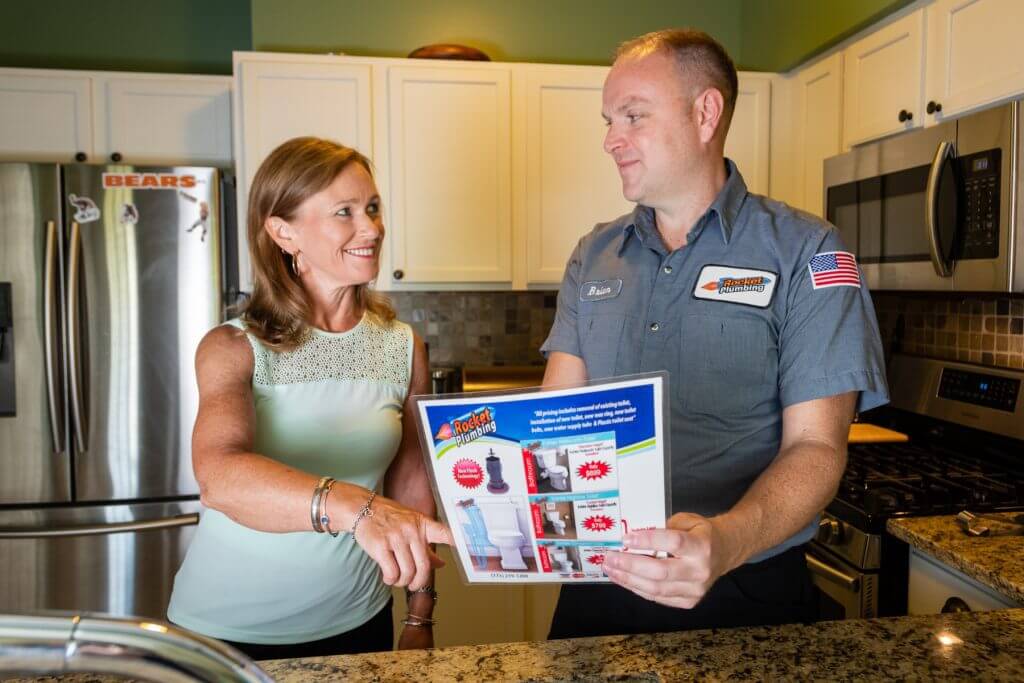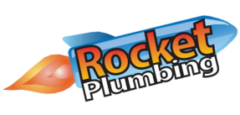Frequently Asked Questions
Top 10 Plumbing Questions Our Customers Ask Us

Q: “I REALLY need someone NOW, but I can’t take time off from work. What do I do?”
A: We offer our customers convenient evening and weekend hours and will be happy to come out when you want us to. If you have an immediate plumbing emergency, please Click Here for our emergency shut-off procedure. Then call us at (773) 219-1200 to schedule an appointment.
Q: “A real plumber in the city with evening and weekend hours? How much more does that cost?”
A: No matter when you need us, our trip fee is always $35 all day, everyday. We understand that no one plans emergencies. We’re just happy to help.
Q: “What areas do you service?”
A: Typically, we service the North Shore and near North Side. Please call to check availability.
Q: “Okay, I’m ready. How soon can you be here?”
A: Normally, we can send a plumber out the same day. Certain emergencies have immediate priority. Please call us at (773) 219-1200 for availability.
Q: “Can you provide me with an estimate before you arrive and look at the problem?”
A: We prefer to provide estimates after a thorough review of your property. Without seeing your problem, it is difficult to determine a price because it is impossible to diagnose a problem without a visual inspection. But, we can give you an average of what a typical repair costs and give you an estimate once we view the problem.
However, in some cases, we are to provide estimates based off of emailed
digital photos. Be sure that you have several shots of the area (in decent lighting) along with any other pertinent information. Give us a call and then email your photos and reference your last name in the subject line.
Q: “Do you install tankless hot water heaters?”
A: Yes
Q: “Will you install our fixtures for us?”
A: Yes
Q: “How much do I pay for estimates?”
A: Our trip fee of $35.
Q: “I have never had to call a plumber before, what should I expect?”
A: Rocket Plumbing is serious about customer service and safety. We background check and drug screen every employee to ensure we have the best personnel in your home. Your first interaction with our company will be a friendly voice of one of our professional customer service people eager to assist you in setting up an appointment. Our technician will call you before heading to your home to ensure you are home and to let you know who is coming.
Q: “Why are you different? Why are you better?”
A: We won’t quit until your problem is solved and you are satisfied.
Q: “What’s the best tool you use for clearing pipelines?”
A: Without a doubt, our Hydro Jet Cleaning Service. It uses the Mongoose Hydro Jet. It is the most effective tool at clearing out the hardest, near impossible clogs. You should see the junk and crud this tool pushes out of flow lines.
Were your questions not already asked?
Feel free to reach out to us with the form below
Frequently Asked Questions About Storm Drain Cleaning
Q: “Do I need to be concerned about Storm Drain backups and clogs?”
A: Unfortunately for Chicago residents, our sewer systems in certain spots of the city have structural issues our City government is wrestling with. Chicago has experienced Hurricane area levels of rainfall in recent years, and our sewer systems understandably were not built for such capacity. That means we all have to take a closer look at systems attached to our businesses or homes.
Restaurants and other food producing industry related businesses tend to backup their drain systems much more than others, and are particularly vulnerable to a storm drain backup.
Unfortunately, clogged storm drains can affect neighbors, and create flooding after rainstorms. Rocket Plumbing recommends if your building is near a food-service business, keep an eye on your own property for potential flooding issues.
Q: “Are sewers and storm drains the same thing?”
A: In other parts of the country, they are two separate independent collection systems. In Chicago, it’s a yes and no situation, due to how flat the Chicago landscape is. Storm water systems carry rainwater back into river systems. Chicago’s flat topography has presented engineers with the problem of moving excess water around without the benefit of natural land height.
Normally not a problem.
However, our historic unprecedented rainfall over the past few years often affects the height of the water table during rainstorms. In many areas of Chicago, this rise in the water table exceeds the storm drainage systems. If you suspect your home or business is at risk, give us a call!
Q: “Doesn’t the City handle the Storm Drains, why would I call a plumber?”
A: They handle the major municipal connections to your home or business. Those who have larger property lines will take in more water into their storm drains as water tables rise. While we leave the municipal and public drains to the City, we can handle all storm drainage pipes inside your property line, which includes:
- Downspout/gutter
- Exterior floor drain and area drains
- Catch basins
- Patio drains
- Sump pump basins
- And all residential drain tile systems
Q: “How do you clear a blocked storm drain?”
A: Normally, we use our Hydro Jet machine for most clogged drains. It is a special tool that shoots water at a high pressure thru carefully selected designed nozzles appropriate for the blockage. With tougher blockage material like roots, leaves, rocks, gravel, dirt, clay, rags, sand, and yes… critters. We use our picote machine.
Q: “How much does Storm Drain Cleaning cost?”
A: Standard drain cleaning fees apply. In fact, check out our coupon to save.
Q: “My window well branch drain got clogged, from the storm drain clog, what now?”
A: The basin area needs to be cleared, and cleaned out. Feel free to call us about how it’s done.
Grease Trap Cleaning and Maintenance Frequently Asked Questions
Q: What are Grease Traps?
A: Their purpose is to reduce the amount of fats, oils, and greases (FOG’s) that enter the main sewers. They are engineered and designed boxes within the drain run that flows between the sinks in a kitchen to the often foul-smelling sewer system. They can be made from different materials:
- Plastics
- Concrete
- Cast Iron
- Stainless Steel
They only have waste water flowing through them and are not served by any other drainage system such as toilets.
Q: What happens to the grease?
A: The trapped grease is stored in the trap until it is cleaned out.
Q: Do I need a Grease Trap?
A: Most Local Authorities require a system to prevent grease and fat from flowing into the main sewage system.
Why?
For Restaurants especially, a neglected Grease Trap can fill a building with awful odors that will:
- Shut your business down for a day or more
- Turn off customers, maybe forever
- Create even more expensive repairs downstream of the Grease Trap
Q: How does a Grease Trap work?
A: It slows down the flow of hot greasy water and allowing the grease to cool as it cools, the fat, oil and grease separate and float to the top of the Grease Trap.
Q: How Often Should They Be Checked?
A: Usually every 6 to 12 months (Depends on the model)
Q: What are the signs that your grease trap needs cleaning?
A:
- An increase of roaches & centipedes around your drains
- When your Grease Trap becomes too full it can overflow or backup in your sink
- You hear bubbling sounds from the drain
- You notice the sink at your home or restaurant are having trouble draining
- And/or a nasty odor coming from your drains
(Ask Us About our $30 Discount offer on your next Grease Trap cleaning)
What Cities Do You Serve?
We serve the Northern and Western areas of Chicago, and all cities in DuPage County from our Naperville location.
